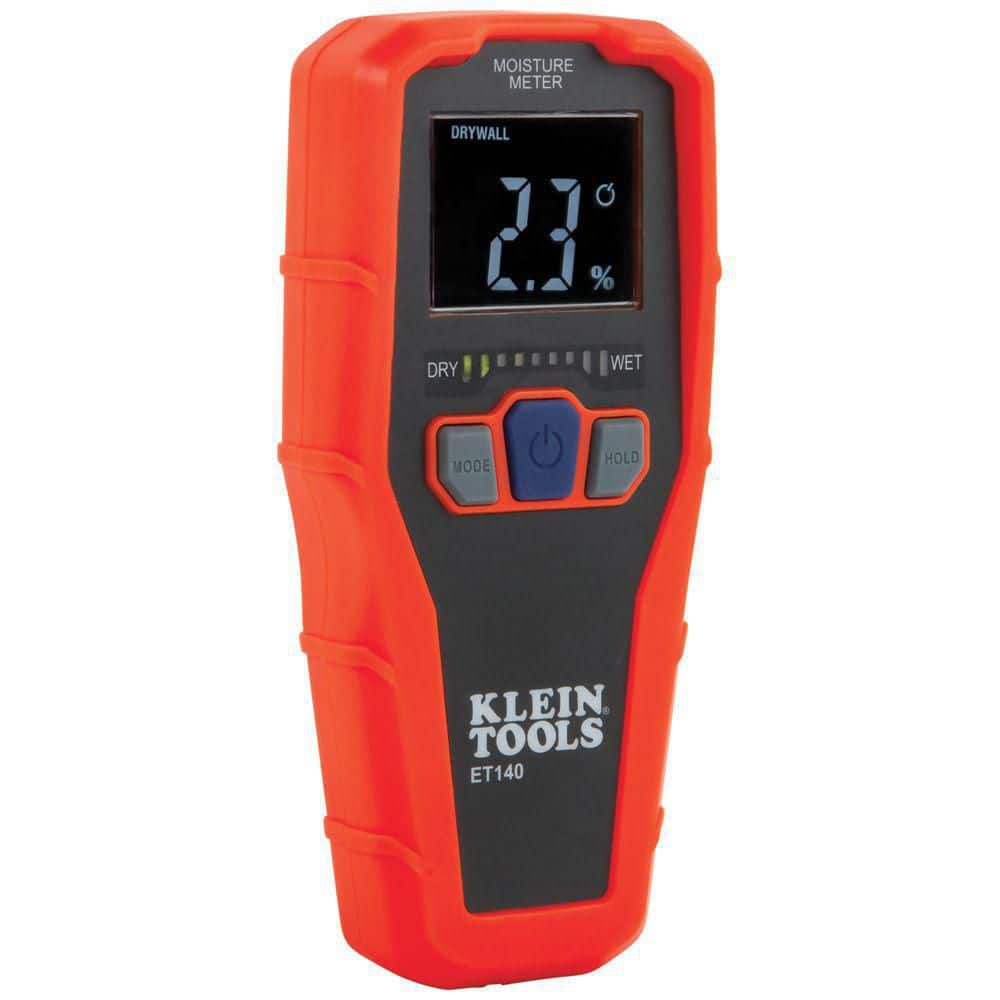The Ultimate Guide to Dampness Meters: A Comprehensive Introduction and How They Can Conserve You Cash
In the realm of building upkeep, building, and various industries, the relevance of properly determining moisture degrees can not be overemphasized. Moisture meters work as indispensable devices in identifying and monitoring moisture web content in products, assisting in protecting against pricey problems and guaranteeing the quality of products. Understanding the subtleties of different sorts of dampness meters, their applications, and the prospective cost-saving advantages they supply can be a game-changer for specialists and companies alike. Uncovering exactly how these devices can not just streamline procedures but likewise add to economic savings is a trip worth starting.
Kinds Of Wetness Meters
One usual kind is the pin-type dampness meter, which gauges the electric resistance in between 2 pins put right into a material. Pinless wetness meters, on the other hand, use electro-magnetic sensing unit plates to check a larger area without triggering damage to the material's surface.

In addition, there are additionally specialized dampness meters created for certain materials like grain, soil, or hay. These meters give exact moisture readings customized to the special residential properties of the product being tested. Infrared moisture meters gauge the thermal buildings of a material to determine its wetness content non-invasively, making them valuable for applications where pin or pinless meters may not appropriate. Recognizing the various kinds of wetness meters readily available can aid industries pick the most suitable device for their specific wetness dimension requirements.

Advantages of Making Use Of Wetness Meters
Wetness meters provide vital benefits in properly keeping an eye on and analyzing dampness degrees in varied products and environments. One of the main advantages of making use of wetness meters is the prevention of potential damages created by excess wetness.
In addition, utilizing wetness meters can lead to increased power effectiveness. In agricultural setups, moisture meters play a critical function in maximizing crop returns by allowing farmers to monitor dirt moisture levels and make educated irrigation choices.
How to Pick the Right Moisture Meter
When selecting a moisture meter, it's essential to ensure that the meter is ideal for the certain material you will be screening. Different materials have differing electric properties that can influence wetness readings, so picking a meter developed for your material is critical for precise results. By meticulously examining these elements, you can pick a wetness meter that meets your demands and supplies accurate dampness measurements for your tasks.
Appropriate Techniques for Wetness Meter Usage

Cost Savings Through Dampness Meter Applications
How can the tactical usage of moisture meters lead to significant price financial savings throughout different markets? Moisture meters play an essential role in cost financial savings by protecting against possible damage and guaranteeing quality control in different industries. In the agriculture industry, dampness meters help click to find out more in figuring out the ideal time for harvesting plants, protecting against excess or over-drying wetness that can affect the end product's quality. This specific tracking assists farmers avoid unneeded losses and optimize their yield.
In a similar way, in browse around these guys building, moisture meters aid stop expensive damages by detecting wetness degrees in building products, such as wood or concrete, which can result in architectural issues if not resolved without delay. By determining problem areas beforehand, specialists can take rehabilitative steps to prevent extensive repair services or substitutes, eventually saving money and time.
Furthermore, in the food processing sector, dampness meters are important for keeping an eye on item quality and making certain conformity with security guidelines. By properly measuring moisture material in food items, suppliers can protect against spoilage, maintain freshness, and decrease waste, leading to substantial price financial savings. Overall, the tactical application of wetness meters is a beneficial financial investment that can lead to substantial expense reductions and enhanced effectiveness throughout numerous industries.
Final Thought
In conclusion, moisture meters are valuable tools for finding and gauging moisture levels Homepage in various products. By making use of the ideal dampness meter and complying with proper strategies, customers can properly avoid costly problems triggered by excess wetness.
Moisture meters offer as vital tools in identifying and monitoring moisture web content in products, aiding in protecting against pricey problems and ensuring the top quality of products. Infrared dampness meters determine the thermal buildings of a product to determine its dampness content non-invasively, making them valuable for applications where pin or pinless meters may not be suitable.Wetness meters offer vital advantages in precisely checking and analyzing dampness degrees in diverse products and environments. In agricultural setups, dampness meters play a vital function in enhancing plant returns by enabling farmers to keep track of soil dampness degrees and make educated irrigation choices.In verdict, moisture meters are beneficial tools for gauging and identifying dampness degrees in numerous products.